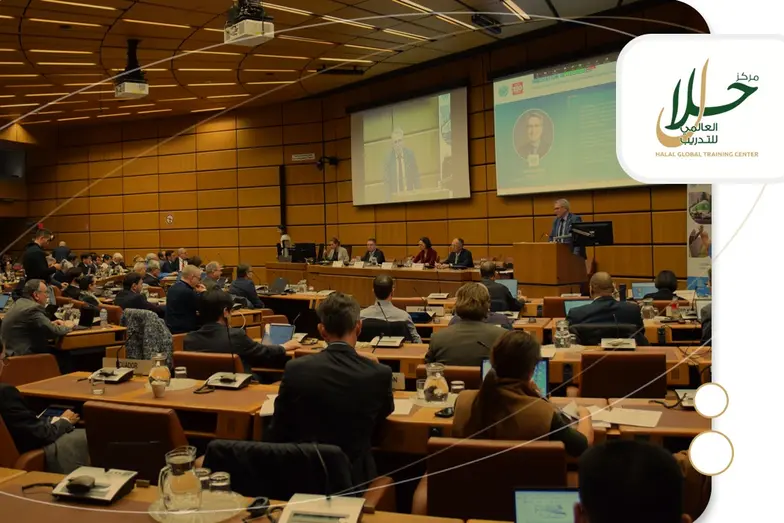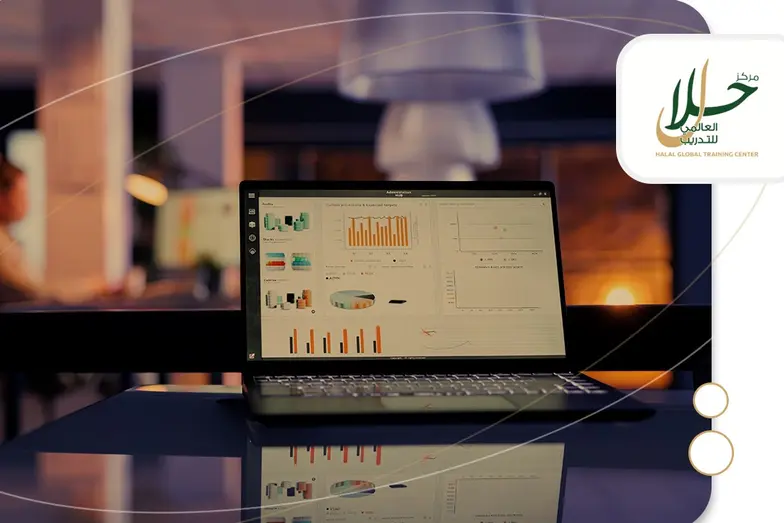
ISO Organization | Your comprehensive guide to the International Organization for Standardization
The International Organization for Standardization (ISO) is one of the most important global organizations with a broad impact on various areas of life, from industrial and commercial products, to quality management systems, to food safety and environmental protection. At the Halal Global Training Center, we share with you the most important information you should know about the ISO.
1. Founding and Purpose:
ISO was founded in 1947 in Geneva, Switzerland, with the aim of unifying standards at the international level. This establishment came as a result of the urgent need to ensure quality and safety after World War II, a period that witnessed the widespread proliferation of counterfeit and unsafe products.
2. Members:
The organization includes 170 national standards bodies from 165 countries, making it the largest standard-setting organization in the world. These national bodies represent the private sector, governments, and non-governmental organizations in each country.
3. Tasks:
ISO's tasks are not limited to setting standards, but also include:
Disseminating knowledge: The organization organizes numerous conferences, workshops, and training courses to raise awareness of the importance and benefits of standards.
Development support: The organization provides technical support to developing countries to enable them to implement ISO standards.
Assessment and accreditation: The organization oversees the process of assessing organizations' conformity to ISO standards and granting them accredited certifications.
4. Benefits:
ISO standards contribute to promoting sustainable development by:
Promoting international trade: Uniform standards facilitate trade between countries and reduce trade barriers.
Consumer protection: Standards ensure the quality and safety of products and services, protecting consumers from the risks of counterfeit or unsafe goods.
Improving quality of life: Standards contribute to improving process efficiency and reducing waste, leading to lower costs and improving quality of life.
Supporting innovation: Standards stimulate innovation by identifying market demands and consumer needs.
5. Most Popular Standards:
ISO issues more than 25,000 standards in various fields, the most popular of which are:
ISO 9001 Quality Management System: This aims to improve the efficiency and effectiveness of organizational processes and is one of the most popular ISO standards.
ISO 14001 Environmental Management System: This helps organizations reduce their environmental impact and improve their environmental performance.
ISO 27001 Information Security Management System: This protects data and information from risks, such as data theft and cyberattacks.
ISO 45001 Occupational Health and Safety Management System: This helps organizations ensure the safety and health of their workers in the workplace.
ISO 22000 Food Safety Management System: This ensures food safety from farm to fork.
6. Obtaining ISO Certification:
ISO does not require organizations to obtain ISO certification, but it represents a significant competitive advantage.
To obtain ISO certification, an organization follows the following steps:
1. Choosing the appropriate ISO standard: The organization determines the standard that best suits its needs and objectives.
2. Implementing the standard's requirements: The organization implements the standard's requirements across all its activities and operations.
3. Evaluation by an accredited body: An accredited body conducts the assessment.
Conclusion: ISO: A Lever of Sustainable Development and a Symbol of Global Quality
Conclusion:
The International Organization for Standardization (ISO) is one of the most important international organizations with a broad impact on various areas of life, from industrial and commercial products, to quality management systems, to food safety and environmental protection.
A Long History of Achievements:
Throughout its long history, ISO has contributed significantly to promoting international trade, protecting consumers, improving quality of life, supporting innovation, and protecting the environment.
Specific Examples of ISO's Impact:
Development of the ISO 9001 Quality Management System: This system revolutionized the business world, helping companies improve the efficiency of their operations and increase customer satisfaction.
ISO 14001 Environmental Management System: This system has helped reduce organizations' environmental impact, leading to improved air, water, and soil quality.
ISO 27001 Information Security Management System: This system has helped protect data and information from risks, increasing customer confidence and improving cybersecurity.
Global Reach:
ISO standards are applied worldwide, making them a common global language for trade and quality.
Looking to the Future:
ISO continues to develop new standards to meet the needs of the times and keep pace with rapid developments in various fields.
Shared Responsibility:
The responsibility for implementing ISO standards lies not only with organizations but also with governments and civil society.
Importance of Implementing ISO Standards:
Enhancing Corporate Competitiveness: ISO standards help companies improve the quality of their products and services, enhancing their ability to compete in the market.
Raising Awareness of the Importance of Quality: ISO standards contribute to spreading awareness of the importance of quality across various sectors of society.
Improving Quality of Life: ISO standards help improve quality of life by ensuring the safety of products and services and protecting the environment.
Finally, ISO represents a symbol of global quality and a lever for sustainable development, playing a significant role in improving human life on planet Earth.
Gulf Standardization Organization | A gateway to implementing quality and safety standards in the Gulf Cooperation Council countries




